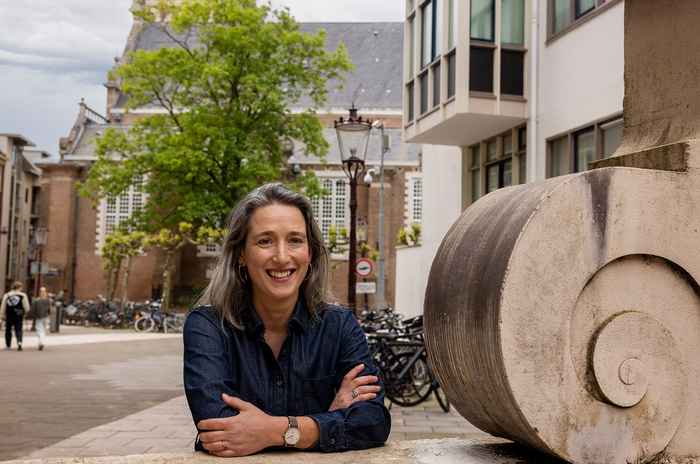Maartje van Gelder appointed professor of Early Modern Urban History
15 January 2025

The early modern city has always been the central theme in Van Gelder’s research. For example, she is currently working on a book about protests in 16th- and 17th-century Venice, which was then known as the city without revolts. Van Gelder discovered that there were actually a lot of protests at that time, but that they were carefully expunged from the archives.
Early modern cities also play a major role in her Dutch Research Council (NWO) Vici grant project Daily Bread. Or: who owns the past?. Van Gelder is researching food protests in early modern Dutch, Italian and Ottoman cities during the Little Ice Age (1500-1800), when climate changes caused crop failures and famines. ‘The project is about how people without power influenced politics,’ says Van Gelder, ‘but also about how cities dealt with the consequences of climate change, and how food scarcity led to conflict and protest – themes that are still as topical as ever.’
The question of whose history it is, and how it is determined which information is passed on or destroyed, is fascinating to me.
Archives and democracy
Another important theme in Van Gelder’s research is historiography itself. ‘The question of whose history it is, and how it is determined which information is passed on or destroyed, is fascinating to me’, she says. ‘Critical reflection on archives and the ways in which we use, access, and digitise archival data is crucial – for historians, but actually for everyone. Archives and their role in shaping collective memories are strongly connected to the development and preservation of a healthy democracy.’
Amsterdam Centre for Urban History
Van Gelder was one of the founders of the Amsterdam Centre for Urban History (ACUH) in 2013, where the history of urban societies is studied from a broad perspective: from Antiquity to the modern period, from Europe to Africa and from the Middle East to North America. The Master in Urban and Architectural History emerged from this too.
Within the new chair, Van Gelder will continue to focus on research and teaching related to the history of the early modern city. At the same time, she will endeavour, together with her colleagues within the ACUH, to set up and further expand collaborative projects with partners from both inside and outside academia. Van Gelder: ‘The ambition of the ACUH is also to discuss the history of urban societies with policymakers, journalists, museum curators and the broader public, thus enriching our understanding of the modern-day city.’